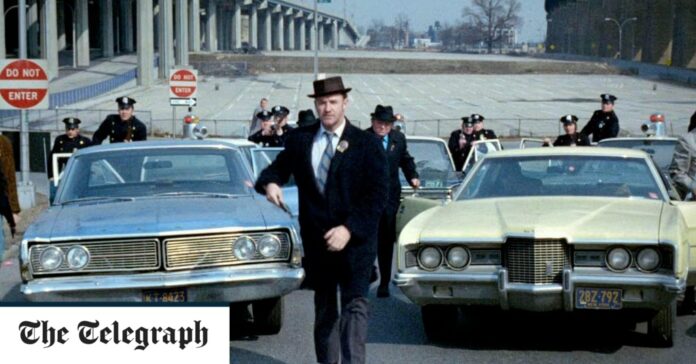The greatest car chase in cinema was shot with no permits and featured actual crashes with real New Yorkers. What could go wrong?
To leave one enduring cinematic classic in a career is an impressive achievement; to give audiences two is remarkable. Yet the death of the director William Friedkin, at the age of 87, will ensure that his two masterpieces, The Exorcist and The French Connection, will be as fondly remembered as they deserve.
The success of The Exorcist – a supernatural horror based on a bestseller – could, admittedly, have been anticipated. But it was Friedkin’s previous film, The French Connection, that was a truly unexpected hit. A low-budget crime thriller from a largely unknown director with a lead actor best known for supporting character roles, it won vast acclaim, Oscars and made a fortune at the box office. As Friedkin would remark in 2021: “It came out and immediately went through the roof like a rocket.”
The director had already made four films before he came to The French Connection, but none of them had been particularly successful. Although he claimed of his debut, a vehicle for Sonny & Cher, that “I’ve made better films than Good Times but I’ve never had so much fun”, his Harold Pinter adaptation The Birthday Party, the burlesque comedy The Night They Raided Minsky’s and the queer cinema milestone The Boys in rhe Band were all commercially unsuccessful. Friedkin seemed fated to be a jobbing director-for-hire, unable to make the step up into the A-list alongside his more successful peers.
It was therefore a faint surprise to him that he was offered a script called The French Connection by Ernest Tidyman, who was best known as the author of the series of novels revolving around the blaxploitation character John Shaft. The producer Philip D’Antoni, who had had conspicuous success with the Steve McQueen police thriller Bullitt in 1968, hoped for something similar, and commissioned a thriller screenplay from Tidyman, which was then handed over to Friedkin.


